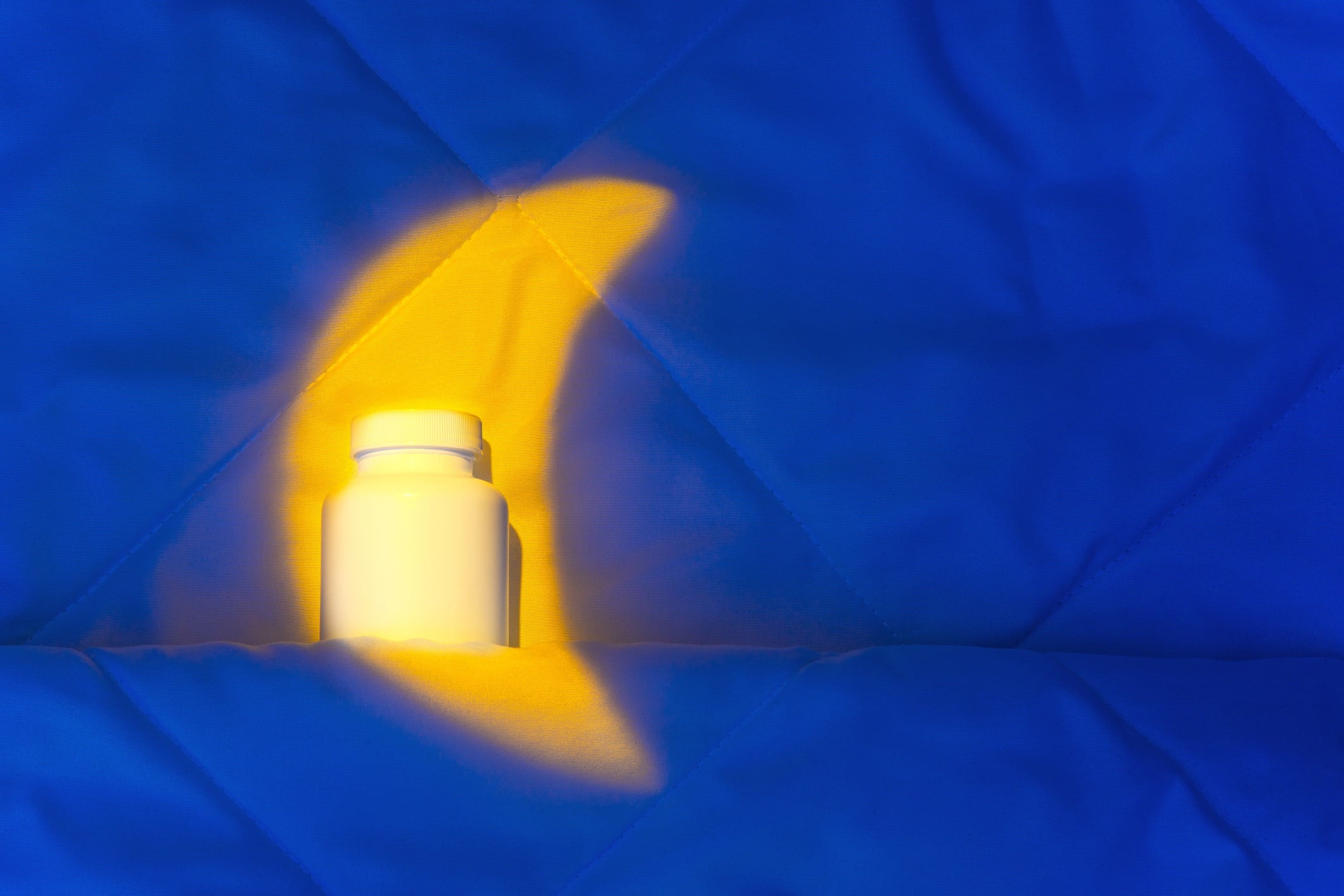The data will be presented at the American Heart Association’s Scientific Sessions 2025 taking place later this week in New Orleans. The AHA does not peer-review the abstracts presented at its conference and stressed in a press release that the findings are considered “preliminary until published as full manuscripts in a peer-reviewed scientific journal”.
Focusing on chronic insomnia, researchers from SUNY Downstate/Kings County Primary Care in Brooklyn, New York report that data from 130,000 adults collected over five years suggested that using melatonin for 12 months or more was associated with a 90% higher chance of incident heart failure, compared to matched non-users (4.6% vs. 2.7%, respectively).
Participants taking melatonin were also nearly 3.5 times as likely to be hospitalized for heart failure when compared to those not taking melatonin (19.0% vs. 6.6%, respectively), according to the researchers.
“Melatonin supplements may not be as harmless as commonly assumed,” stated Ekenedilichukwu Nnadi, MD. “If our study is confirmed, this could affect how doctors counsel patients about sleep aids. Melatonin supplements are widely thought of as a safe and ‘natural’ option to support better sleep, so it was striking to see such consistent and significant increases in serious health outcomes, even after balancing for many other risk factors.”
Commenting independently, Marie-Pierre St-Onge, PhD, chair of the writing group for the American Heart Association’s 2025 scientific statement, Multidimensional Sleep Health: Definitions and Implications for Cardiometabolic Health, said: “I’m surprised that physicians would prescribe melatonin for insomnia and have patients use it for more than 365 days, since melatonin, at least in the U.S., is not indicated for the treatment of insomnia. In the U.S., melatonin can be taken as an over-the-counter supplement, and people should be aware that it should not be taken chronically without a proper indication.”
NPA: ‘Supplements are not intended to treat, cure, or prevent disease’
In response to the news, the Natural Products Association (NPA) released a statement stressing that dietary supplements sold in the United States are not intended to treat, cure, or prevent disease, per express language in the Dietary Supplement Health and Education Act of 1994, a fact the AHA failed to address in its press release.
“We recommend that consumers with chronic sleeplessness and other chronic diseases always consult with their physicians to properly diagnose and treat their medical conditions,” said Daniel Fabricant, PhD, president and CEO of NPA.
“The preliminary study examined whether melatonin use alters the risk of heart failure in chronic insomnia patients, which is not the supplement industry’s target population. Furthermore, the established literature demonstrates that short-term use of melatonin is safe. NPA agrees that consumers should not take melatonin supplements for chronic insomnia without a proper indication and in close consultation with a medical professional.”
“While NPA supports further research to test the long-term safety of melatonin for the heart, it’s important to note that this preliminary study focused on a disease population,” Dr. Fabricant added. “We do not promote the use of melatonin supplements to treat chronic insomnia or any other disease. NPA and its members take very seriously the industry’s responsibility to manufacture quality products based on cGMP requirements that FDA enforces.”
CRN: ‘Short-term supplementation is safe for healthy adults’
The Council for Responsible Nutrition adopted voluntary melatonin labeling guidelines in 2024, which recommend upper dosage levels and include advisory statements such as “For occasional and/or intermittent use only” and “Consult a healthcare professional if you are experiencing long-term sleep difficulties.”
Commenting on the new study, CRN stated that melatonin is a naturally occurring hormone with well-established short-term uses for regulating sleep timing and circadian rhythm.
“Decades of consumer experience and multiple clinical studies indicate that low-dose, short-term supplementation is safe for healthy adults when used as directed,” the association shared in a statement. “The observational data presented at AHA do not alter that safety profile.
“CRN supports ongoing scientific research to better understand long-term use patterns of all dietary supplements and welcomes rigorous, peer-reviewed investigations that contribute to evidence-based guidance. However, no single study—especially a preliminary abstract—should serve as the basis for broad conclusions or alarmist headlines about dietary supplements.”
Study details and limitations
Sourcing data from the TriNetX Global Research Network, an international database, the researchers assessed data from 130,828 adult insomniacs (average age of 55.7 years; 61.4% women). Approximately 50% (65,414 participants) had been prescribed melatonin at least once and reported taking it for at least a year. The melatonin users were matched to people who had never been prescribed melatonin with similar demographics and health conditions.
The authors noted several limitations with their analysis, including combining data from countries that require a prescription for melatonin (such as the UK) and countries that do not (such as the U.S.). In addition, the researchers could not ascertain patient locations.
Importantly, everyone taking it as an over-the-counter supplement in the U.S. or other countries that do not require a prescription would have been in the non-melatonin group.
“This limitation raises additional questions about whether there is an actual cause-and-effect relationship and emphasizes that the study did not focus on the occasional use of melatonin for sleeplessness or other conditions, or FDA-regulated supplements containing versions of the hormone,” NPA stated.





